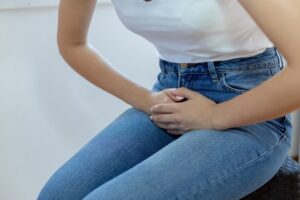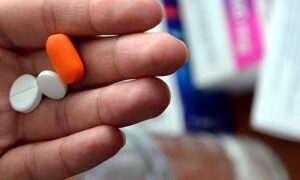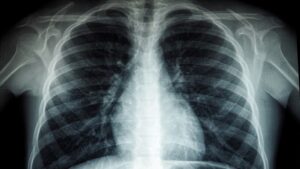[ad_1]
Mass vaccinations, which continue at an unabated pace aiming at the coveted immunity, seem to have positively affected the sexual mood, as stated by 4 out of 10 participants in a survey carried out in Greece and Cyprus.
In particular, the optimism inspired by the vaccines has fostered the expectation that this summer will be highly erotic in the Eastern Mediterranean, with 66% of Cypriot residents believing that the summer of 2021 will be a period of sexual “outbreak” and residents of our country to follow very closely, with a rate of 63%.
The data, which portends a hot romantic summer, was highlighted by a recent survey by the Andrology Institute, which was carried out using online questionnaires on 2,000 people from Greece and 600 from Cyprus, aged 18-65 last June.
What did the research show about Greece?
The data, which portends a hot romantic summer, was highlighted by a recent survey by the Andrology Institute, which was carried out using online questionnaires on 2,000 people from Greece and 600 from Cyprus, aged 18-65 last June. Of the 2,000 Greeks questioned, 56.4% said they had been vaccinated while 43.6% said they had not been vaccinated.
In the question “What is the frequency of sexual intercourse??” the 2,000 Greeks who were asked answered:
- 46,9% 1-2 times a week
- 28% not once a week
- 16,4% 3-4 times a week and
- 7,8% more than 5 times a week.
The 54,4% it’s mentioned that vaccination has not affected their love lifewhile 38.8% state that it has had a positive effect and only 6.7% reported that it had a negative effect.
At the same time, the 6 out of 10 Greeks (63.2%) believe that the mass vaccinations will lead to liberation of sexuality this summer, while almost 4 in 10 (36.8%) have the opposite opinion.
The love game cause of dispersion?
The results capture the picture of reality before the resurgence of cases and the intense debate of the supporters and opponents of vaccinations, as it is possible that an investigation thisn moment might have recorded different results. The initial inspiration for the main research question came from the prediction of Professor Nikolas Christakis that after the end of the pandemic there will be a period where the morals of the citizens will change and they will show a tendency towards “debauchery” and greed, as the period of the pandemic turned people in metaphysical thought and religion.
Public health authorities’ guidelines, while not calling foreplay dangerous, portrayed it as a potential source of spread – and rightly so, as proximity and the exchange of bodily fluids can well transmit SARS-CoV-2. The vaccine brought back the spontaneity that Cupid needs in real life and this is also reflected in the research results.
A previous survey at the beginning of 2021 eloquently recorded the positive response of citizens to the announcement of finding effective vaccines, which was also reflected in the increase in libido and the frequency of sexual contacts. In the present survey with the vaccine now a reality, the difference in desire is demonstrated in real time, as almost 4 out of 10 participants in both Greece and Cyprus consider that mass vaccinations have positively affected their love life.
«The vaccine seems to have defeated the fear that prevailed in all societies, whose only defense was compulsory confinement and social distancing measures. These always resulted in the avoidance of intercourse (kisses, caresses, handshakes) and of course had as a consequence the avoidance of the tenderness that precedes love“, the experts point out.
The results of the survey show that 55% of the residents of Cyprus and 43% of the residents of our country who responded to the questionnaire, have received at least one dose of the vaccine, with these findings generally corresponding to the official government data about the course of vaccinations.
The mask that entered our lives as the ultimate means of protection also meant that human fluids and breaths are dangerous for transmission. But kisses, caresses, breaths face to face, have been a necessary natural precursor to love for thousands of years of human history.
The beginning of the pandemic
At the beginning of the pandemic, mandatory holidays from work were a kind of gift for couples who did not have time to meet, or when they did, they were tired and angry from the obligations of everyday life. The beginning of the pandemic was a pleasant surprise and was experienced as a midwinter gift with paid holidays. Couples got back together and love lives took off, according to all surveys worldwide.
But as the pandemic progressed, people experienced threat, fear, economic insecurity and a now mandatory coexistence in small apartments with children, parents and relatives. The original holiday ideal gave way to grumbling, tantrums and daily conflicts (domestic violence skyrocketed worldwide) and divorce filings soared; alcohol consumption and drug use skyrocketed.
The big loser in this phase was sex, since closed, scared and angry people were not in the mood even for the solitary acts of pleasure, which are common with the help of computers and sex toys.
The climate of fear, the deaths in the intensive care units, the embarrassment of science to define a clear horizon of the end of the pandemic, raised the stress to the heights and lowered to the depths the desires and love lives of the people of the planet.
The hormonal cycle of people is responsible for the interpretation of the change of mood, which is controlled by a small area of the brain, the pituitary gland, which simultaneously produces euphoric and dysphoric substances, confusing his logic, since this production is regulated by a single chemical substance. Fear, hate, love are mediated by the hormone of desire and anger. When anger and anxiety are overproduced during stress, euphoria escapes.
Information: Andrology Institute
[ad_2]
Source link






